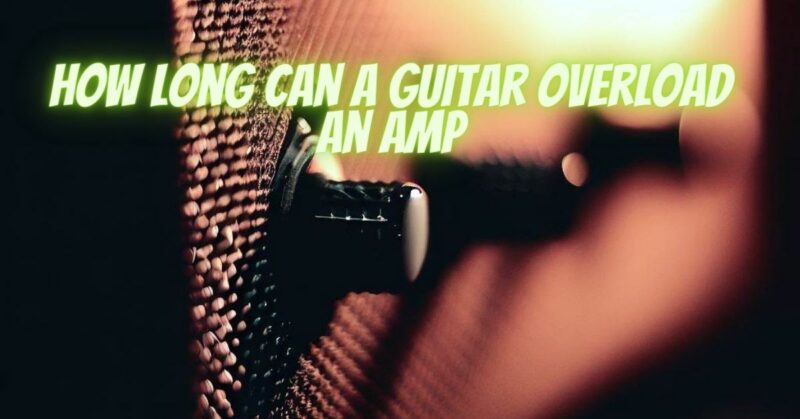The amount of time that a guitar can overload an amp depends on a number of factors, including the wattage rating of the amp, the volume of the guitar, and the condition of the amp.
In general, a guitar can overload an amp for a short period of time without causing any damage. However, if the amp is overloaded for too long, it can overheat and damage the speakers.
The wattage rating of the amp is the maximum amount of power that the amp can safely handle. If you play a guitar that is louder than the amp’s wattage rating, the amp may be damaged.
The volume of the guitar also plays a role. If you play the guitar at a very high volume, it can overload the amp even if the amp is not at its maximum wattage rating.
The condition of the amp also plays a role. If the amp is old or damaged, it may be more likely to be damaged by overloading.
To avoid overloading your amp, it is important to follow these tips:
- Do not play the guitar louder than the amp’s wattage rating: This is the most important tip to avoid overloading your amp.
- Take breaks when playing the amp at high volumes: This will give the amp a chance to cool down.
- Keep the amp clean: Dust and dirt can build up on the amp and cause it to overheat.
- Have the amp serviced regularly: This will help to detect and repair any potential problems before they cause damage.
By following these tips, you can help to prevent your amp from being damaged by overloading.
Here are some additional things to keep in mind:
- If you hear the amp distorting, it is a sign that it is being overloaded. Reduce the volume of the guitar or take a break from playing.
- If you see the amp’s speakers glowing red, it is a sign that they are overheating. Reduce the volume of the guitar or turn off the amp immediately.
- If you smell smoke coming from the amp, it is a sign that it is overheating. Turn off the amp immediately and let it cool down.


